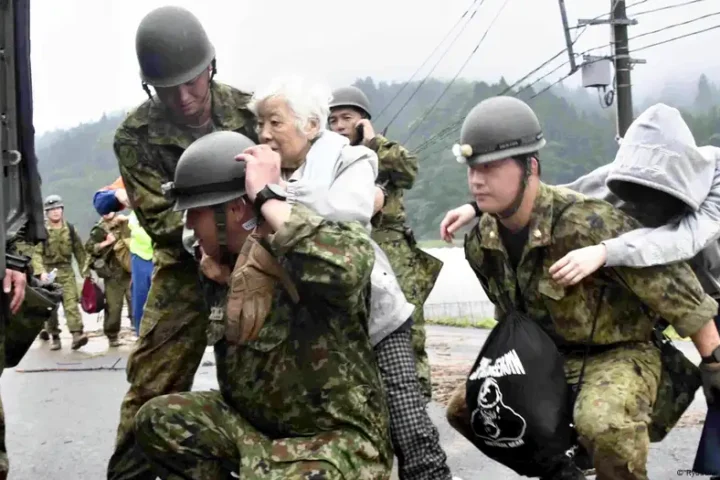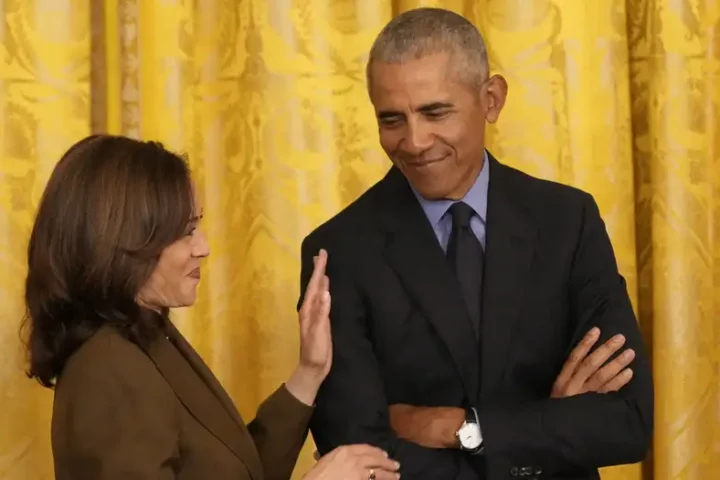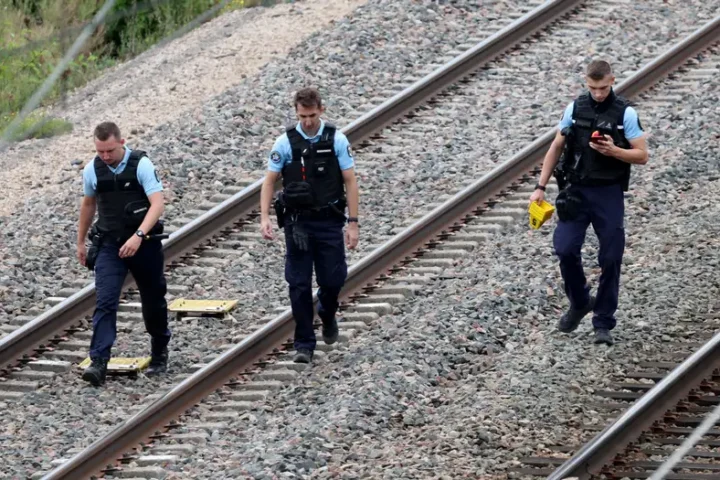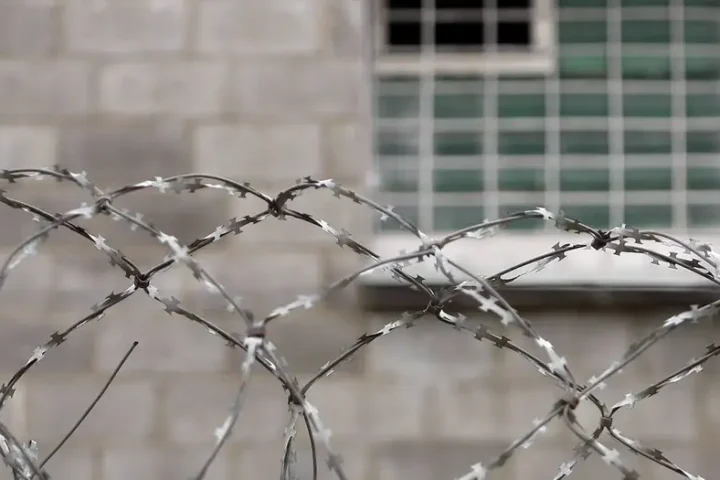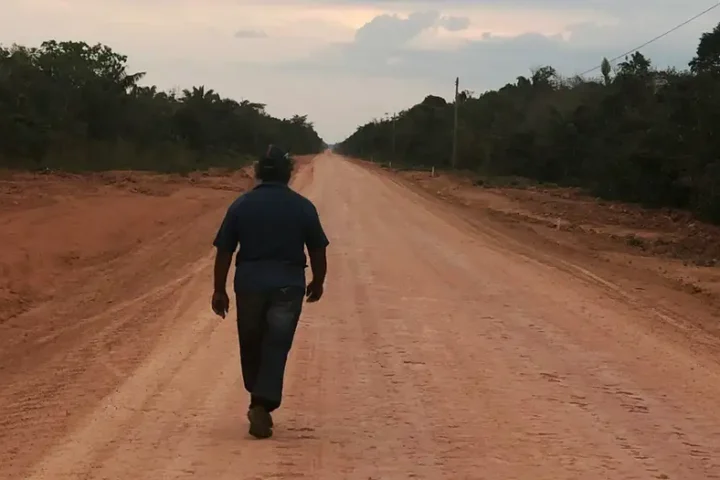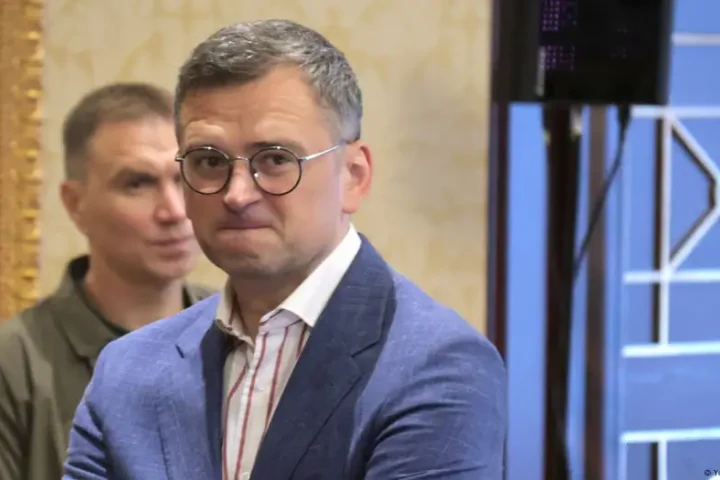Wall Street Journal reporter Evan Gershkovich was arrested in Russia on espionage charges last year. Moscow’s military censorship laws against journalists have made it increasingly dangerous to report from Russia.
Friday marks one year since Wall Street Journal reporter Evan Gershkovich was arrested in Russia on espionage charges.
Last year, upon his arrest while on a reporting trip to the Ural Mountains city of Yekaterinburg, Russia’s FSB security agency said he was accused of gathering information on “the activities of one of the enterprises of the military-defense complex” in Russia “for the American side.”
Russian authorities did not reveal any details of the charges or provide evidence.
Gershkovich, the WSJ and the US government all deny the allegations. On Tuesday, US Ambassador to Russia Lynne Tracy called the accusations “categorically untrue.”
The 32-year-old is held in Moscow’s Lefortovo Prison awaiting trial.
Gershkovich made regular reporting trips into Russia, even after dozens of other correspondents left the country following Moscow’s invasion of Ukraine.
“He was accredited by the Foreign Ministry,” his mother, Ella Milman, told the AFP news agency. “I don’t think any of us could see the Russians going as far as charging him with this fake espionage.”
US citizens imprisoned in Russia
Another detainee, Alsu Kurmasheva, an American and Russian dual citizen, faces multiple charges, including spreading false information about the army and not self-reporting as a “foreign agent.”
Kurmasheva is a Prague-based editor for the US government-funded Radio Free Europe/Radio Liberty’s Tatar-Bashkir service.
She was arrested in October 2023 after she traveled to her hometown of Kazan to see her ailing mother. Currently awaiting trial, she could face up to 15 years in prison if convicted.
Also imprisoned in Russia are US citizens Paul Whelan, a former US Marine who was handed a 16-year prison sentence in Russia over alleged spying, and Ksenia Khavana, of Los Angeles, who was arrested over a $51 (€47.33) donation to a US charity that helps Ukraine.
Dangerous for journalists
Since the beginning of Russia’s full-scale invasion of Ukraine, Moscow has enforced military censorship laws against journalists who use information other than that provided by Russian officials.
On Thursday, a Russian court sentenced journalist Mikhail Feldman to two years in prison for denouncing its military offensive in Ukraine.
The court said Feldman had discredited Russia’s armed forces in a series of posts on Russian social media, according to his lawyer.
Late on Wednesday, Russian police detained journalist Antonina Favorskaya, who filmed the last video of opposition politician Alexei Navalny before he died in a remote penal colony.
Favorskaya, working for SOTAvision, was taken in for interrogation after serving 10 days in prison for laying flowers at Navalny’s grave.
Four other colleagues of hers were subsequently detained by the police.
Using detained citizens as leverage
Russian President Vladimir Putin said in December that he hoped there could be prisoner swaps between Moscow and Washington in the cases of Gershkovich and Whelan.
The United States has accused Russia of using detained citizens as leverage, a claim Russia refutes. In the past, prisoner swaps with Russia resulted in the releases of WNBA star Brittney Griner and Marine veteran Trevor Reed.
Nina Khrushcheva, a Moscow-born professor of international affairs at the New School in New York and the great-granddaughter of Soviet leader Nikita Khrushchev said, “When the relationships (between countries) are better, the exchanges seem to be smoother.”
But with the increasingly strained relationship between the US and Russia, Khrushcheva said, the fate of those imprisoned in Russia “is only in Putin’s hands.”
Source: Dw


